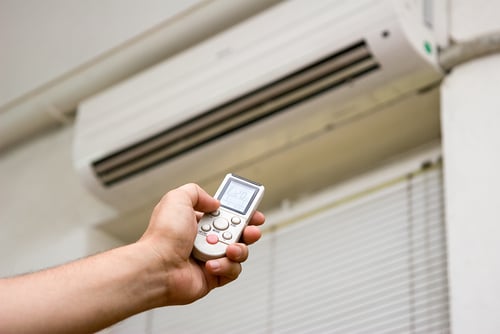Which HVAC system is right for your home?
As you scour the internet in search of the perfect solution for your comfort needs pre-HVAC replacement or installation project, you’re bound to question what system is right for your home. Do you need to redo the duct work? Is your duct work in good shape? Do you even need duct work to be comfortable? After all, Portland weather is fairly mild most of the year. You’ve heard of ductless before, is that a viable option?
The best answer is: It depends. It depends on your needs, wants and space.
Weigh your options and do your research. Do you need central air or is ductless the way to go?
What is ductless A/C?
Ductless mini split-system air conditioners have worked their way into the mainstream builder’s MO in recent years because of the small size and flexibility for heating or cooling individual rooms or zones. Usually used as a retrofit add-on for homes with heating systems which have non-ducted heating systems like hydronic, space heaters or radiant panels and the like. They’re also an awesome choice for room additions or small apartments. Ductless mini splits have two main components – just like their central air counterpart – with an outdoor compressor and an indoor air-handler with a conduit linking the two.
Which system should you choose?
Each HVAC system has their pros and cons, central air is often more affordable on the upfront costs but ductless often produces more efficient distribution of the air, cutting costs on your energy bills. Ducted systems offer better air circulation while a mini system keeps the air cleaner. Check out the list below when you’re weighing the options for your home.
Efficiency
Ductless mini systems are praised for their reputation of superior energy efficiency. They allow you to stream air directly into a room through the indoor air handler. And they can be installed so heated and cooled air is limited to specific zones in the home – skipping out on rooms with limited uses – creating superior comfort and lower energy bills.
Forced-air systems, on the other hand, must be circulated throughout the entire house due to the balanced duct work. And, according to Energy Star, ducted units tend to lose anywhere between 20 and 30 percent of air passing though because of leaks, holes or poorly connected ducts.
WINNER: Ductless
Ductless mini systems easily overtake their ducted counterparts. The ability to zone the air flow to keep the rooms you use most at a precise temperature provides uncompromised comfort without digging into your wallet to over compensate.
Design
The aesthetics of a ductless system have caused pause for some homeowners. The indoor handler boxes are mounted on the wall or ceiling of each room for the ductless systems which isn’t always ideal for your interior décor.
With a ducted system, all of the equipment for the unit is tucked away, hidden behind walls and crawl spaces. This leads to seamless integration into your home’s interior design.
WINNER: Central air
Ducted systems are discrete and offer no distraction to your interior. While some high-end ductless systems have compact, low-profile indoor units, central air tops the competition.
Installation
Most ductless systems require a licensed HVAC contractor to install the unit to keep the warranty valid. And because most of the legwork has to be done prior to the installation, all the contractor needs to do is drill a small hole through an exterior wall, place the air handlers inside and then connect the conduit between the units.
Central air depends heavily on your unique situation. If your home has existing ductwork, extending the ducts into remodeled or new rooms can be both messy and expensive. Add-in the additional load placed on current heating and cooling systems plus the new airflow.
WINNER: Ductless
Ductless mini splits offer up a practical solution for a space that does not already have ducts and for areas where the ductwork is in poor shape. The installation process is a breeze.
No matter which system you opt to install, seek out a qualified HVAC company to size your system correctly. Have questions about ductless systems? Get in touch with us for more information.

